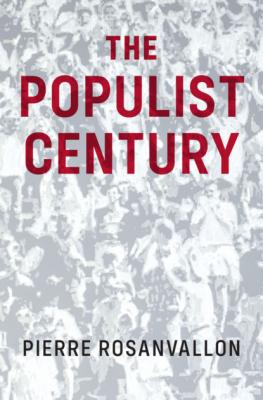The Populist Century. Pierre Rosanvallon
Чтение книги онлайн.
Читать онлайн книгу The Populist Century - Pierre Rosanvallon страница
 ection id="u65eb7eed-4730-56d7-a2c9-26e7ba8b0dd2">
ection id="u65eb7eed-4730-56d7-a2c9-26e7ba8b0dd2">
Table of Contents
1 Cover
4 Introduction: Conceptualizing Populism A reality to be theorized The anatomy of populism The three histories of populism On critiques of populism The alternative Notes
6 1 A Conception of “The People”: The People as One Body From class to people Them and us The power of a word Notes
7 2 A Theory of Democracy: Direct, Polarized, Immediate The cult of referendums and the apologia for direct democracy Democracy polarized Immediate expression by the people Notes
8 3 A Mode of Representation: A Leader Embodying the People The Latin American precedent The leader as an organ of the people’s body Notes
9 4 A Politics and a Philosophy of Economics: National Protectionism The return of political will A conception of justice and equality Protectionism as an instrument of security Notes
10 5 A Regime of Passions and Emotions The factors underlying the “return of the emotions” Status-related emotions Intellect-related emotions Action-related emotions Is there a populist personality? Notes
11 6 The Unity and Diversity of Populisms Diffuse populism Regimes and movements “Left” and “right” populisms Notes
12 II History
13 1 History of Populist Moments I: Caesarism and Illiberal Democracy in France The theory of the plebiscite One man embodying the people and the people as one body Democratic polarization On the Caesarian critique of parties A “democratic” vision for limiting freedom of the press Notes
14 2 History of Populist Moments II: The Years 1890–1914 The panacea of referendums The rise of national protectionism Populism aborted Notes
15 3 History of Populist Moments III: The Latin American Laboratory Gaitán: a foundational figure The Peronist regime On the characterization of Latin American populism Notes
16 4 Conceptual History: Populism as a Democratic Form Structuring aporia I: the unlocatable people Structuring aporia II: the ambiguities of representative democracy Structuring aporia III: the avatars of impersonality Structuring aporia IV: defining the regime of equality